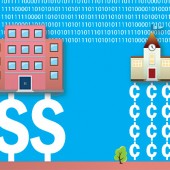
Open Access is only one part of a larger shift taking place in the academic world—particularly the sciences—says Richard Price, founder and CEO of academia.edu. Price argues that academia is moving toward a system where the credibility of research, publications, and ultimately researchers themselves, is gauged not by the prestige of the journal in which works are published, but by the usage, citations, and professional feedback that the works generate online.








